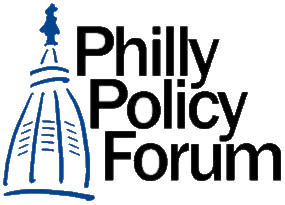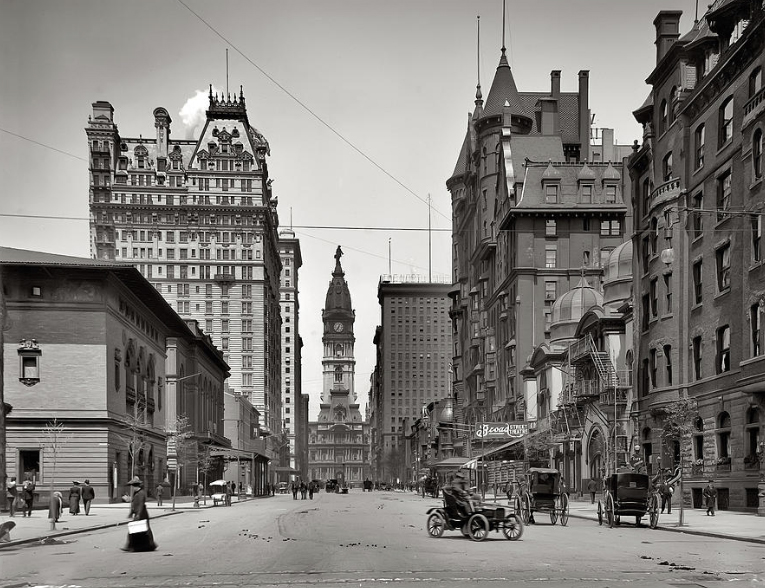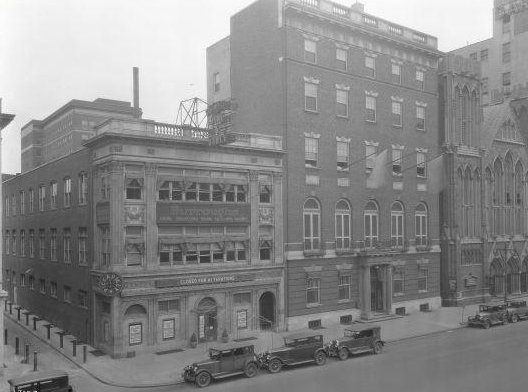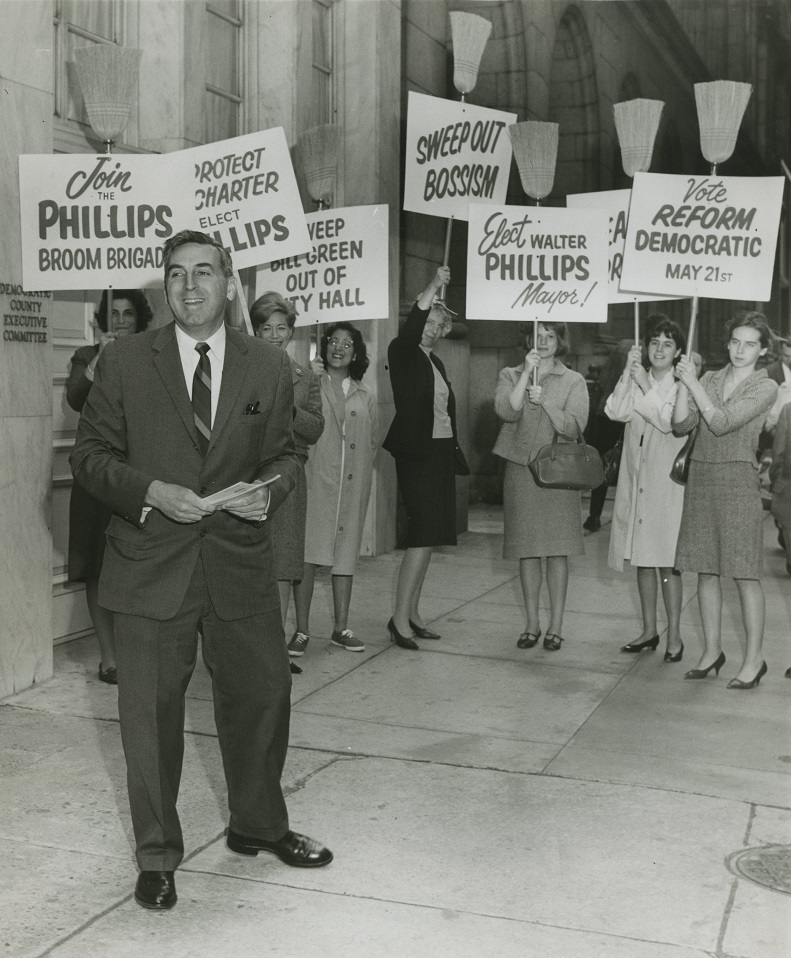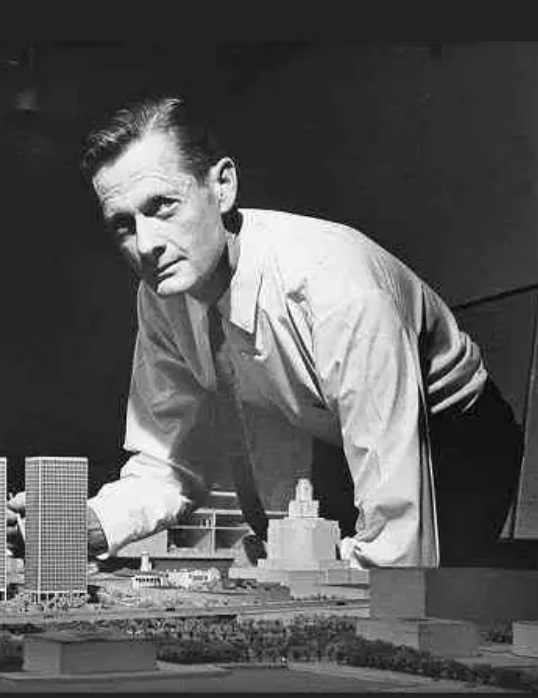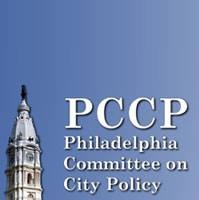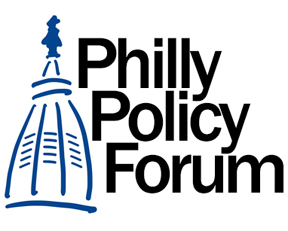Our History
The Philadelphia Committee on City Policy, through its Philly Policy Forum, informs and engages citizens, civic leaders, and its members on the policies and initiatives to address key issues facing the city. The PCCP’s Philly Policy Forum serves as a bridge between government, non-profits, the private and philanthropic sectors as well as being an important social connection for our diverse members and participants. The PCCP hosts the discussions at luncheons held every month between September and June. Members of the PCCP help carry on a century-old legacy of civic engagement in Philadelphia, as seen in the timeline below.
1900s
City Club is established in Philadelphia
1905
City Club is established in Philadelphia, one of many such clubs in major cities where businessmen (yes just men, unfortunately) and professionals gathered to discuss issues of the day. The club had a building at 313 South Broad Street.
1930s
Re-established as the Philadelphia Committee on Public Affairs (PCPA)
1934
Philadelphia Committee on Public Affairs (PCPA) is established, a men’s only luncheon group led by prominent academic and civic leaders, including Wharton economist Karl William Henry Stolz. PCPA’s mission was to “bring people together interested in public affairs and to give them a place to meet, talk and act.”
1940s
Republican reformer Walter Phillips and urban planner Ed Bacon rebrands PCPA as the City Policy Committee (CPC)
1940
City Policy Committee (CPC) is established by Republican reformer Walter Phillips and a young urban planner Ed Bacon. This time, the club welcomes women. CPC is focused on “Philadelphia’s young and the politically active.” At one point, CPC had 50 members including doctors, lawyers, architects, housing experts, and social workers who met every two weeks to talk about the “issues plaguing the city.” In 1941, CPC in collaboration with a conservative sister organization Lawyer’s Council on Civic Affairs proposed an ordinance to the City Council for the establishment of a permanent planning commission. It was approved and later headed by Bacon.
1950s
Philadelphia Committee on City Policy (PCCP) is established
1952
Philadelphia Committee on City Policy (PCCP) is established amid a flurry of civic activism around Philadelphia’s Charter reform movement. PCCP members included civic leaders Roger Scattergood and Ed Bacon. Among other acts as a behind-the-scenes forum for policy discussions and activists, PCCP published a 1961 policy paper on the costs of medical care, hosted future Gov. Milton Shapp at one of its luncheons in 1967, and provided a venue for discussion of housing desegregation in the 1960s.
1990s
PCCP becomes a nonprofit
1990
PCCP re-registers as a nonprofit entity under Pennsylvania law.
PCCP Leadership Award Winners
1996 – 1999
PCCP launches an annual Leadership Award to honor a person who exercised leadership in matters of public policy at the citywide or community level or an organization that exemplified dedication and service to Philadelphia in the preceding year. The latest was awarded in 2013.
PCCP Leadership Award Winners
1996 – Philip Price
1997 – Elliot Shelkrot
1998 – Willard G. Rouse / Ruth Wright Hayre (posthumously)
1999 – Ernest E. Jones
2000s
PCCP merges with the Second Tuesday Club
2000
PCCP merges with the Second Tuesday Club, which hosted a monthly lunch meeting for mid- and upper-level managers of the City of Philadelphia to discuss major policy issues in a less formal setting and to break down some of the silos of City government.
PCCP Leadership Award Winners
2000 – 2013
PCCP Leadership Award Winners
2000 – Cecilia Yep
2001 – Joanne Denworth
2002 – Paul Levy
2003 – Philadelphia Bar Association Homeless Advocacy Project
2009 – Phil Goldsmith
2013 – John Andrew Gallery
2020s
PCCP shifts to virtual events due to the COVID-19 pandemic
2020
PCCP shifts to virtual monthly meetings, temporarily during the COVID-19 pandemic. Session recordings are posted on PCCP’s Youtube channel.
PCCP resumes in-person events and is rebranded as Philly Policy Forum
2023
PCCP resumes in-person events and renames its speaker series the “Philly Policy Forum” to better convey its activities and intentions.
“No important change is accomplished in city, state or national affairs except through the action of a group who not only have the understanding of the problems, but also understanding of each other and confidence in one another.”
